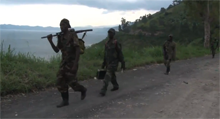
Building Trust in AI through Justice


Array
(
[thumbnail] => https://s42831.pcdn.co/wp-content/uploads/2022/09/hero-placeholder-150x150.png
[thumbnail-width] => 150
[thumbnail-height] => 150
[medium] => https://s42831.pcdn.co/wp-content/uploads/2022/09/hero-placeholder-300x129.png
[medium-width] => 300
[medium-height] => 129
[medium_large] => https://s42831.pcdn.co/wp-content/uploads/2022/09/hero-placeholder-768x329.png
[medium_large-width] => 768
[medium_large-height] => 329
[large] => https://s42831.pcdn.co/wp-content/uploads/2022/09/hero-placeholder-1024x439.png
[large-width] => 1024
[large-height] => 439
[1536x1536] => https://s42831.pcdn.co/wp-content/uploads/2022/09/hero-placeholder.png
[1536x1536-width] => 1400
[1536x1536-height] => 600
[2048x2048] => https://s42831.pcdn.co/wp-content/uploads/2022/09/hero-placeholder.png
[2048x2048-width] => 1400
[2048x2048-height] => 600
[gform-image-choice-sm] => https://s42831.pcdn.co/wp-content/uploads/2022/09/hero-placeholder.png
[gform-image-choice-sm-width] => 300
[gform-image-choice-sm-height] => 129
[gform-image-choice-md] => https://s42831.pcdn.co/wp-content/uploads/2022/09/hero-placeholder.png
[gform-image-choice-md-width] => 400
[gform-image-choice-md-height] => 171
[gform-image-choice-lg] => https://s42831.pcdn.co/wp-content/uploads/2022/09/hero-placeholder.png
[gform-image-choice-lg-width] => 600
[gform-image-choice-lg-height] => 257
)

Numerous global actors and institutions have raised awareness within the development and conflict management communities that large portions of the world’s poor are increasingly concentrated in conflict-affected and fragile states. The UN Peacebuilding Commission, the g7+, the International Dialogue, the International Network on Conflict and Fragility, and the 2011 World Development Report have all made essential contributions to this effort.
Despite increased awareness of the link between conflict and development, including peace, stability, and governance issues in the post-2015 agenda remains controversial. We have found three reasons for this:
The UN System Task Team on the Post-2015 Development Agenda made an early misstep in its report Realizing the Future We Want for All. Released in June 2012, this report included “peace and security” as one of the four core dimensions of their vision for the future. Framing the issue in terms of the UN’s “peace and security” agenda, rather than through the lens of a development-security linkage, invokes the interventionist language of Chapter VII of the UN Charter. It was interpreted to suggest a securitization of development issues, implying a role for the UN Security Council. And it encompassed a wide range of security challenges beyond those relevant to poverty reduction and economic development. The use of the “peace and security” framing drew criticism in the UN and played into the hands of those actors that were already predisposed to resist the inclusion of peace in development discussions.
There was extensive debate on these issues in the High-level Panel on the Post-2015 Development Agenda (HLP) meetings. Three important shifts took place in the framing and substance of this agenda, which enabled the HLP to reach consensus on these issues in its report, while dampening potential opposition.
The shifts were:
1. Moving away from the language of “peace and security” (addressing concerns about the securitization of development);
2. Shifting from a “reduce” approach – reduce violence, reduce insecurity, etc. – to a “build” approach. Reduction is too associated with a negative or punitive agenda, can bring the concern of intervention back to the discussion. The focus on “building,” and more specifically on institution building, is more acceptable to emerging powers; and
3. Shifting from a focus on the state to a focus on society. These shifts are reflected in the goal proposed by the HLP on “building stable societies.” This formulation incorporated some Latin American countries’ concerns about “citizen security”, thus broadening the base of support for these issues, and isolating those who opposed the new formulation.
Another political challenge is that discussions of violence and governance go to the heart of state capacity and legitimacy. Several actors, particularly among middle-income countries, are concerned about the implications of discussing domestic conflict and instability within a global and potentially universal framework. Their concern is that measuring these global issues threatens their sovereignty and creates the potential for their countries to be placed on “the wrong list.” For example, the Declaration of Santiago, which came out of the first summit of the Community of Latin American and Caribbean States strongly rejects “the unilateral and illegitimate assessments, lists and certifications made by some developed countries which affect countries of the region, in particular, those referring to terrorism, drug trafficking, human trafficking and other related measures.” Combining specific goals and targets that also identify external factors will help to alleviate this concern and ensure a more truly universal agenda.
At a practical level, there is concern among some member states that aid will shift towards fragile states. Given reductions in ODA from a number of western governments, funding is a central concern of the overall post-2015 agenda. However, current trends belie this fear, and actually show a shift of aid towards middle-income countries. Aid to countries with the highest poverty levels and which are the furthest behind on the MDGs is likely to stagnate, including Sub-Saharan African countries such as Burundi, Chad, Madagascar, Malawi, and Niger.
At present, the constellation of member states supporting the inclusion of peace, stability, and governance in the post-2015 agenda is comprised of OECD and g7+ countries. While the g7+ are strong and effective advocates for peace and stability, their credibility is limited, particularly among the G77, who see the g7+ as linked to and even controlled by the OECD. In addition, there is a strong civil society constituency, the most vocal of which are based in OECD countries, which further contributes to the perception that goals around peace, stability, and governance constitute a “northern agenda.”
This is clearly not the case, as reflected in extensive global, regional, and national consultations conducted by the UN system, but a stronger voice from southern civil society will be needed to make clear that the inclusion of peace and stability in the post-2015 agenda is a universal demand. Initial efforts have been influential, but it will be important to continue to bring in external voices to the discussions in New York and to promote genuine dialogue around these issues.
In tomorrow’s post we suggest three ways a political space can be carved for countries to compromise on the inclusion of peace, stability, and governance in the post-2015 framework.
Publication Date:
Jan 07, 2014
Author(s):
Jennifer Slotin<
Topic(s):
Post 2015 Development,
United Nations
Program(s):
Pathfinders for Peaceful, Just and Inclusive Societies


Subscribe to our newsletter and receive regular updates on our latest events, analysis, and resources.
"*" indicates required fields